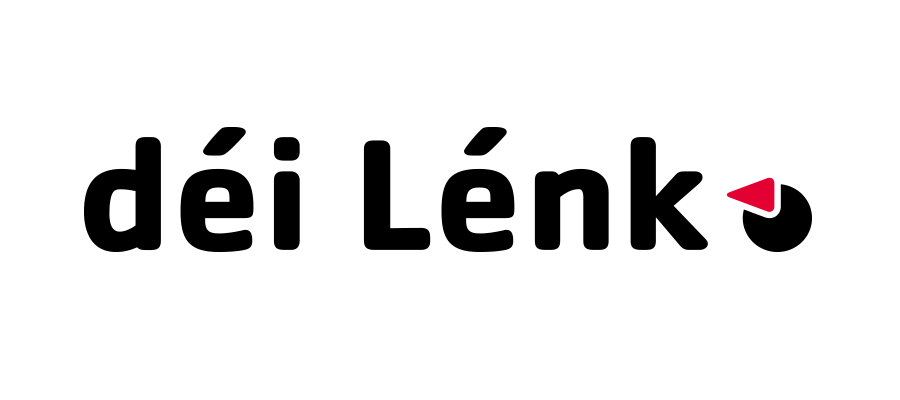
déi Lénk is a movement of people that, as different as their reasons, backgrounds of experiences may be, are committed to political action. They all share one goal: to work together for a more equal, free and just society.
We see ourselves in line with all the progressive movements that formed our society. The workers movements which fought for the social protection that we enjoy and which are still defending it today. The environmental movements which alerted us very early to the ecological crisis and which question more than ever the destructive economical practices. The women’s movements which after decades achieved gender equality in different domains and continue their struggle every day. The alterglobalization movement which wants to build international relations on solidarity and the respect of human rights, instead of competition and exploitation. The peace movements that continually remind ourselves that democracy and justice can’t be achieved through war and violence.
All those movements with all their militants and their commitment have formed the basis for what déi Lénk stands for today. We are committed to the changes that make our society more just and freer today and by that we are helping to lay the foundations for the changes needed tomorrow.
“Because the struggles of today are making another world possible in the future.”
This commitment needs strength. It’s a road with successes and setbacks. It’s a fight against opponents that use power and wealth to impose their interests by all means. But it is a fight that together we can win.
déi Lénk is always present where people need support and conviction. We stand by the people that defend their rights and we are working towards adding new rights through campaigns and political action. We discuss and decide in open forums and help to train people so they can participate in the political debate. Very often we are the only opposition in Parliament against the political mainstream and we regularly elaborate proposals in the interest of the people. We work in our villages and in the neighbourhoods and cooperate with partner organisations in the neighbouring regions and all over Europe in order to consolidate our ideas and gain political ground beyond our national borders.

